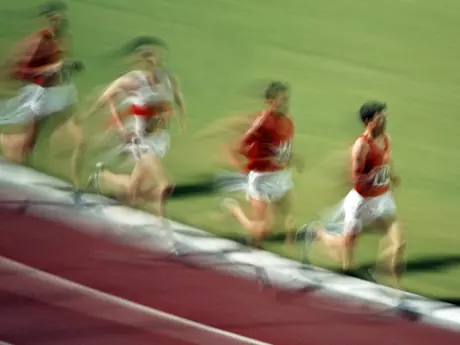Mental Endurance
Come race day, the Ironman does not require a particularly complicated strategy. Simply bring your bicycle, running shoes, nutrition and fitness, follow the course markers as you swim, bike, and run, and your fitness should carry you to the finish line.
On the other hand, adventure racing has no course markers, only checkpoints in the wilderness. You have to constantly think, plan and calculate.
For example, do you take your exhausted team on a steep shortcut up a mountain or sacrifice time to conserve energy and travel the long way around? Will you be able to reach a certain checkpoint and make it back before the time cutoff? These questions and many more are unique to adventure racing, and by the end of these races, you are more mentally exhausted than physically depleted.
Risk
Risk is the spice that makes a sport exciting and challenging. For the Ironman, the risk for most competitors is the open water swim. Limited visibility mixed in with rough ocean water, plus a hundred other athletes swimming around and over you can end a race soon after the start.
By definition, a 12-hour adventure race involves risk. The moment you enter the wilderness with your team, map and compass, you assume a minimum level of risk. This includes bicycles having mechanical failures, athletes getting injured, or your team, getting lost. In every cases, the sport expects you to manage these situations, recover and continue racing.
Skill Set
Swimming is the primary skill needed for the Ironman. Proper stroke technique, breathing, and sighting are essential to getting through this tough portion of the race. Biking and running rely more upon physical fitness, nutrition and hydration.
The 12-hour adventure race is 100 percent a skill-dependent sport. Map and compass skills are mandatory. Kayak skills above fitness are critical to safety, and mountain biking on skinny off-road trails is a skill far more challenging than riding on the road. And, of course, you need teamwork to ultimately find success at the finish line.
The Scorecard
So, if you are keeping score, here are the totals.
| Factor | Ironman | 12-Hour AR |
| Training | X | |
| Physical Endurance | X | |
| Mental Endurance | X | |
| Risk | X | |
| Skill Set | X |
The Ironman is certain more physically demanding, but ultimately the 12-hour adventure race is the tougher sport owing to the higher degrees of risk, skills and mental demands it places upon its athletes.
For additional tips on adventure racing and up-to-date information for the active outdoors enthusiast, register for our monthly newsletter.
Hani Juha is an active adventure racer, triathlon coach, and co-founder of California Adventure Racing Association, a non-profit that helps promote teamwork and community through adventure racing.
- 2
- of
- 2
Get ACTIVE on the Go


Couch to 5K®
The best way to get new runners off the couch and across the finish line of their first 5K.
Available for iOS | Android








Discuss This Article